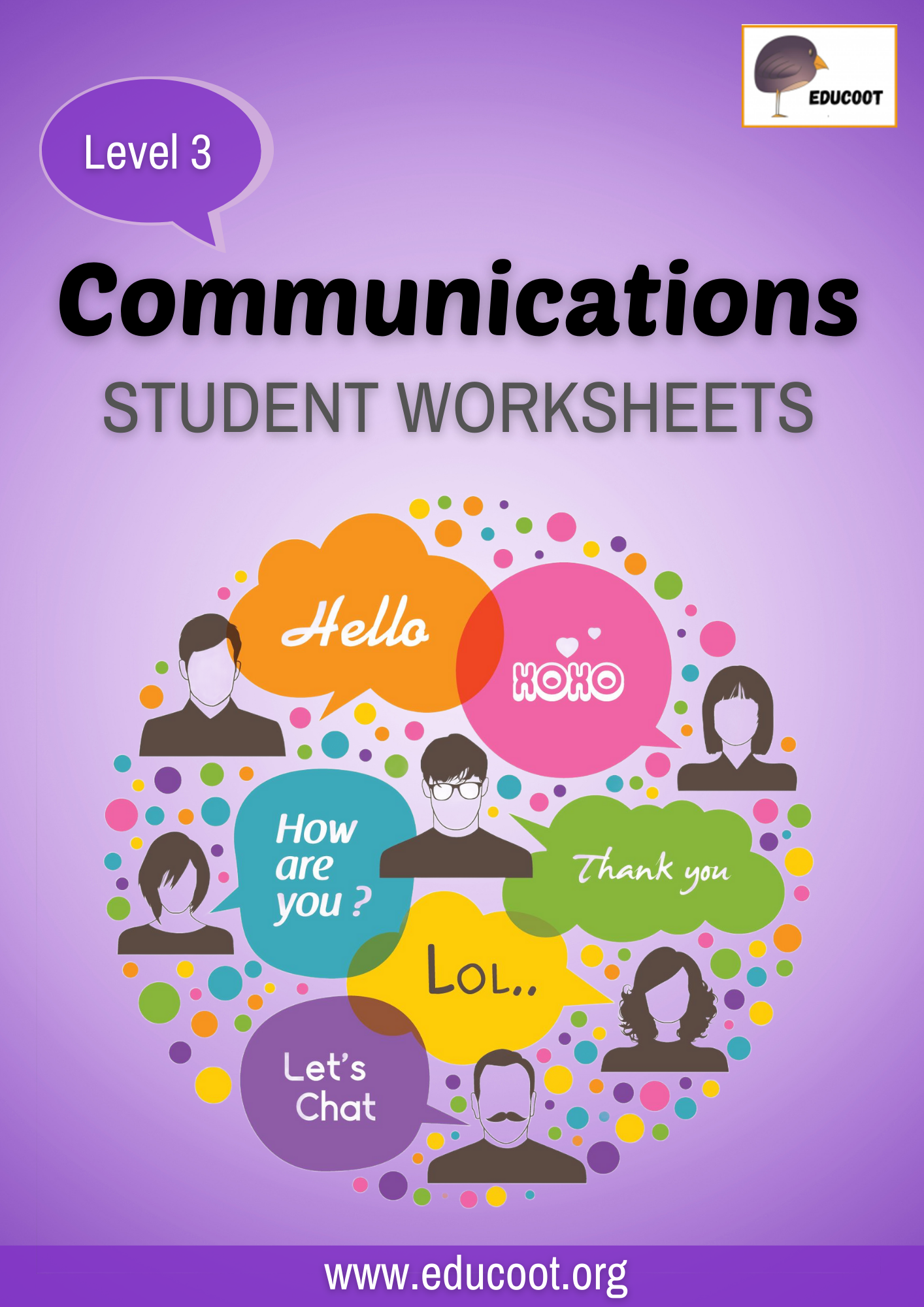Level 3 Communications
Level 3 Communications
DIGITAL RESOURCE ONLY
Student worksheets- 218 pages
Printable
Teaching slides
Extras
See a sample here
Students will cover the following learning outcomes:
READING
Outline a limited range of reading techniques to include scanning, skimming
Read a limited range of different texts, including work-related, personal and social or community life material, for a variety of purposes, to include identification of bias, genre, key features, learning context, entertainment
Use a limited range of reading techniques to locate specific information in reference materials and short pieces of text, to include scanning, skimming and reading for more detailed understanding
Extract the main facts, ideas and opinions from simple written material, to include media articles, information pamphlets, fiction.
WRITING
Use drafting, proof reading, spelling and sentence structure that is fit for purpose to include simple instructions, personal and formal correspondence
Write to support learning to include note and message taking, expressive writing, and learning aids such as learning journal or mind-maps
Interact with others through a limited range of current electronic and social networking technologies taking appropriate consideration of the benefits and risks of such technologies.
INTERPERSONAL COMMUNICATION
Interpret common signs, symbols and non-verbal messages to include traffic and road signs, hazard signs, care labels
Identify the principal factors affecting everyday interpersonal communication, to include effective listening and speaking, body language, social, physical, relational, mood/state of mind, purpose, speech, genre, status
Use non-verbal signals and visual aids to convey different messages
Initiate a conversation in different settings to include active listening skills whilst face to face and on the phone, using small talk or ice-breakers, expressing personal opinions, feelings, facts and disagreement
Narrate observations, events, experience, feedback and procedures using appropriate vocabulary within a small group, to include a story or anecdote, arts or media related issue, a situation of enquiry, local event, conflict or personal concern
Use questioning techniques for a range of formal or informal purposes, to include learning, and matters of fact, inference, interpretation and fiction 3
Use the vocabulary appropriate to a range of public contexts, to include personal health care, working life, financial transactions.

